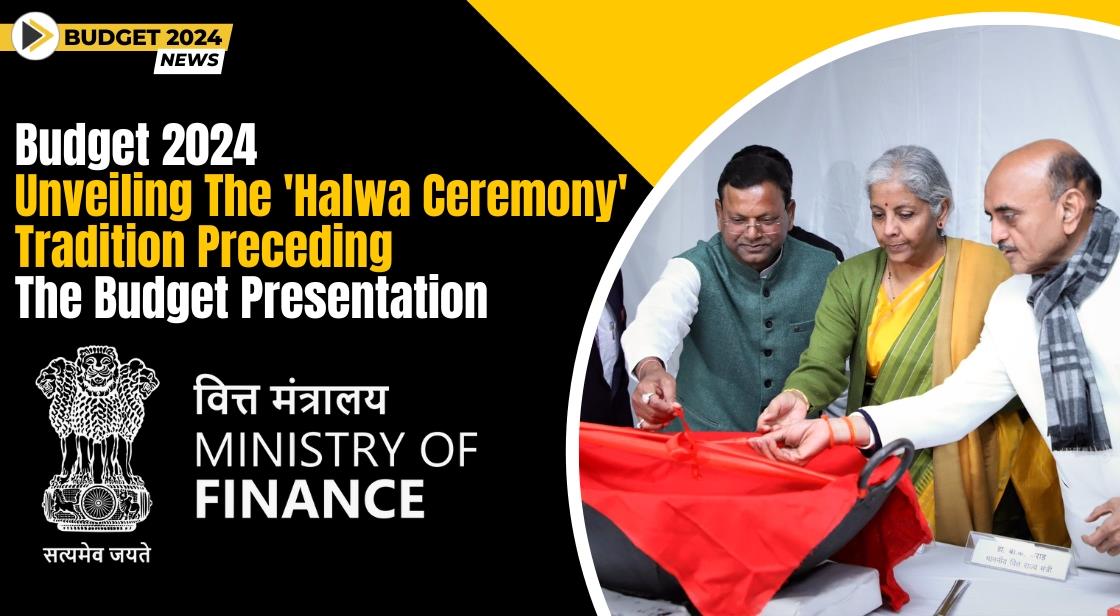Budget 2024: Unveiling the 'Halwa Ceremony' Tradition Preceding the Budget Presentation

News Synopsis
As the final session of the 17th Lok Sabha gears up from January 31 to February 9, Union Finance Minister Nirmala Sitharaman is poised to present the interim budget on February 1, setting the stage for the full-fledged Budget for the fiscal year 2024-25 after the upcoming general elections.
A customary "Halwa Ceremony" will precede the budget presentation, marking an annual ritual attended by the finance minister and key officials, symbolizing the initiation of the budget-related document printing process.
Understanding the Halwa Ceremony:
The Halwa Ceremony is a significant prelude to the elaborate process of budget preparation, spanning several months. This ceremonial event is more than just tradition; it serves as the official commencement of the printing process for various documents integral to the budget.
Beyond the Ceremony: A Glimpse into the Budget-Making Process
The Halwa Ceremony is merely the tip of the iceberg. The budget-making process is a complex, multi-phased journey:
-
Initial Inputs: Various entities such as ministries, states, and defense forces submit their budget estimates.
-
Internal Negotiations: The Finance Ministry meticulously revises and negotiates these estimates, balancing priorities and resource allocation.
-
Prime Ministerial Approval: Once finalized, the budget proposal receives the Prime Minister's approval before heading to the printing stage.
Formal Send-off and Confidentiality Measures:
During the Halwa Ceremony, finance ministry officials and staff involved in crafting the Union government's annual financial statement receive a formal "send-off." This signifies the beginning of a 'lock-in' period, during which these officials isolate themselves within the ministry premises, refraining from contact with their families. The purpose is to uphold the confidentiality surrounding the final budget document.
Exiting Lockdown Post-Budget Presentation:
The staff engaged in the budget preparation process remains secluded within the North Block until the finance minister officially tables the budget in Lok Sabha on February 1. Only after this presentation are they permitted to exit the lockdown, having successfully safeguarded the confidentiality of the budgetary details.
Restrictions and Mobile Phone Ban:
Leading up to the budget presentation, those involved in the budget-making process are subjected to stringent restrictions. A mobile phone ban is enforced, adding an additional layer of confidentiality to the proceedings. These measures aim to prevent leaks or unauthorized disclosures of sensitive budgetary information.
History of Security Measures:
The origins of these security measures can be traced back to a significant breach that occurred in 1950. During John Mathai's tenure as the finance minister, a portion of the 1950 Union Budget was leaked while the document was being printed at Rashtrapati Bhawan. In response to this breach, the printing venue was relocated to a government press on Minto Road. Since 1980, the North Block basement at Delhi's Secretariat Building has been established as the permanent location for budget printing.
Post-Leak Developments:
Following the 1950 leak, Finance Minister Mathai faced allegations of favoring higher powers and affluent individuals. In response to the controversy, he resigned from his position, highlighting the critical importance of maintaining the confidentiality of the budget preparation process.
Conclusion:
The Halwa Ceremony, with its historical significance and security protocols, remains an integral part of the budget presentation ritual, underscoring the commitment to confidentiality and the prevention of leaks that could impact the economy and financial markets.
You May Like









